Abstract 11/2016
Table of content
Jan Kempa, Damian Iwanowicz – General evaluation and development concept of passenger information system in the regional transport of the Kujawsko-Pomorskie voivodeship
Wojciech Bąkowski – Methodology for determining household demand for public transport services
Elżbieta Pilecka – Geological conditions of the subway construction in Cracow and possibilities of application geophysical methods for their assessment
Radosław Bul – Towards Poznań Metropolitan Railway – activities for the construction of railway system in the Poznań agglomeration
Jacek Malasek – Towards the new paradigm for urban transport management
Aleksandra Faron – Conception of development of Cracow University of Technology area in Czyżyny in conjuction with transport system
Urszula Duda-Wiertel, Katarzyna Nosal – Process of realisation and results of the Active Marketing Campaign promoting public transport in suburban areas
Radosław Bąk – Lane operation with non-standard signalized entries at intersections
Bryniarska Zofia, Jastrząb Wojciech – Analysis of the impact of unplanned stops of tram vehicles on the traffic flow on the example of Cracow
Abstracts
Jan Kempa, Damian Iwanowicz
General evaluation and development concept of passenger information system in the regional transport of the Kujawsko-Pomorskie voivodeship
Abstract: The article presents the assessment and diagnosis of the existing situation, conditions and development concept of the passenger information system in the regional public transport system of the Kujawsko-Pomorskie province. Moreover, the data and findings from interviews with the passengers conducted on the basis of transport questionnaires have been presented in the article. Thanks this the main drawbacks of the present passenger information system and passengers’ expectations and preferences have been found. The data has been used in the presented concept of the information system in the public transport system of the province. The concept has been created within the Public Transport Study of the Kujawsko-Pomorskie province undertaken for the needs of the Kujawsko-Pomorskie Public Transport Sustainable Development Plan.
Key words: public transport, passenger information system
Wojciech Bąkowski
Methodology for determining household demand for public transport services
Abstract: In the study on demand for public transport services behavior of individual passengers is considered in respect to the tariff prices and quality of offered services in respect to the supply side. I believe that in addition to these categories purchase of a vehicle by the household has also an impact on the selection of transport’ means within the urban agglomeration. Household has a different number of people and based on the probability theory it can be determined that people sometimes travel by a car and sometimes by public transport. I will try to prove the thesis that demographic structure of the household owing a car is a measurable source of demand for public transport. The purpose of the article is to present a method to determine – with some probability – households’ demand for services in public transport. The article is based on the studies of G. Whitehead, P. Krugman, R. Robin and other representatives of economics dealing with categories of demand, household budget, utility services and the value of service.
Key words: public transport, demand, household,
Elżbieta Pilecka
Geological conditions of the subway construction in Cracow and possibilities of application geophysical methods for their assessment
Abstract: The article presents geological conditions of subway construction in Cracow and possibilities of application geophysical methods for their assessment. Development trends of the transport system in Cracow and also historical concepts of construction of the subway up to the current concept from 2014 have been discussed. The characteristic horst structure of the city of Cracow, determines ways to identify the geological conditions for underground construction. Attention is paid to the role of geophysical methods in the diagnosis of the risks that results from the presence of karst formations (sinkholes, voids, cracks), tectonic trenches, faults, horsts, and also from the water pressure in the Jurassic – Cretaceous formations.
Key words: subway construction, geophysical methods, geology
Radosław Bul
Towards PoznańMetropolitan Railway – activities for the construction of railway system in the Poznań agglomeration
Abstract: The aim of the article is to present activities of local government for the construction of Poznan Metropolitan Railway. The planned system should be main transport axis of the city and its suburban zone. In addition, it should also be a real alternative to individual car transport. The article presents activities related to the construction of the final system but also ongoing activities carried out by the government, which helps to improve actual regional railway system in the area of Poznan and its suburban. Thanks to the these activities the operation of railway system in the Poznań agglomeration is being improved, what is proved by the growing number of passengers.
Key words: metropolitan railway, Poznań Metropolitan Railway, PKM, Poznań, Metropolitan Poznań Association
Jacek Malasek
Towards the new paradigm for urban transport management
Abstract: The new urban transport paradigm should be based on the following premises: A need for improving mobility for handicapped and elderly people; Quick development of ICT, smart cities idea and eco-mobility services; A need for applying in transport sector the RER rule, i.e. resilience, efficiency and remanufacturing; ARTS (Autonomic Road Transport Support Systems) development. Presented draft of a new urban transport paradigm shows the vision of transport system functioning in the future. It can be used also as a new research agenda for the EU Framework Programs in science.
Key words: new transport paradigm, eco-mobility, resilience, efficiency, remanufacturing of urban transport system
Aleksandra Faron
Conception of development of Cracow University of Technology area in Czyżyny in conjuction with transport system
Abstract: Urban planning process, especially for housing and office buildings, should consider connection with the transport systems. It is essential to plan the location of traffic generators such as office complexes, residential areas and educational units close to the public transport and bicycle infrastructure. The quality of walking access to the public transport stops is also significant. At the same time the monofunctional areas should be planned taking role and connection with the surroundings into consideration and it case it is needed – its structure should be changed. This article presents changes from the planned monofunctional structure in Cracow (as a service function) into the multifunctional area – the main emphasis was put on the area accessibility to the public and bicycle transport. The article is a result of the “Ripari urbo – repair city” workshop which was organized by the Student Research Group of Transportation Systems with the support of research employees of Cracow University of Technology, including author of this article.
Key words: planning of transport systems, spatial development planning, sustainable transport
Urszula Duda-Wiertel, Katarzyna Nosal
Process of realisation and results of the Active Marketing Campaign promoting public transport in suburban areas
Abstract: The article presents process of realisation and results of the Active Marketing Campaign, promoting public transport service in the Liszki Municipality located near Cracow. An AMC is a direct marketing campaign informing current and potential passengers about general as well as personalized travel’s possibilities. Parallel to traditional information activities, interaction with users is ensured through the organization of meetings and events, as well as personal advice given by the mobility consultants. Organization of the campaign in the Liszki Municipality has proved, that even in the areas with poorer transport public service a demand for access to data about the service operation appears and the information, educational and marketing activities have an impact on the awareness rising as well as increase the motivation for giving up private car. However in order to reach significant changes these activities need to be implemented as an element of the broad strategy consisting of organizational and investment measures.
Key words: public transport, Active Marketing Campaign, personalised information, transport education
Radosław Bąk
Lane operation with non-standard signalized entries at intersections
Abstract: In recent years a new type of traffic lane operation has been introduced on selected signalized intersections located in Cracow. The main idea of non-standard signalized entries is to use two independent signal groups for traffic movements using at one lane. This scenario has not been analyzed yet in terms of road safety and traffic progression in details. The article presents preliminary safety analysis based on accident data for intersections located in Cracow. The main aim of the article is to present methodology of capacity calculation of one lane entry with two independently signalized movements. The calculation procedure is based on probability of obstructing the entry by vehicles reacting to particular red signal, while another signal group is green. Developed calculation procedure has been verified by microsimulation. The results show that described traffic lane operation may function as safe and effective solution which contribute with improvement of situation at the intersection.
Key words: traffic, signalized intersection, capacity, flow lane allocation, road safety
Bryniarska Zofia, Jastrząb Wojciech
Analysis of the impact of unplanned stops of tram vehicles on the traffic flow on the example of Cracow
Abstract: Dynamic development of cities, their attractiveness and the living conditions are strongly bound up with the efficient performance of transport, in particular means of urban public transport. Fundamental role in transporting inhabitants in Cracow is played by tram transport service. The tram network is continuously expanded and modernized, the frequency of vehicles on the main tram traffic routes is high, but the speed of tram transport vehicles, especially in the city center, is lower than the speed of bus transport. In addition, there are events causing every day tram traffic stoppings which result with stopping of tramways following those which are blocked and can’t be passed round. The reasons of stoppings are often of random origin so as: accidents, collisions, fainting passengers or break the catenary by a strong wind, but the incidents also result from the failure of tram vehicles, tram infrastructure or lack of voltage in the catenary, which, in many, cases could have been prevented properly maintaining technical elements. The results of the analysis of tram traffic fluidity on the basis of analysis of number of tram stoppings and their duration, depending on the reasons of stoppings, their location, bodies responsible for stoppings and the number of additional trams involved in the stoppings have been presented in the article.
Key words: tram transport service, tram traffic fluidity, collective public transport
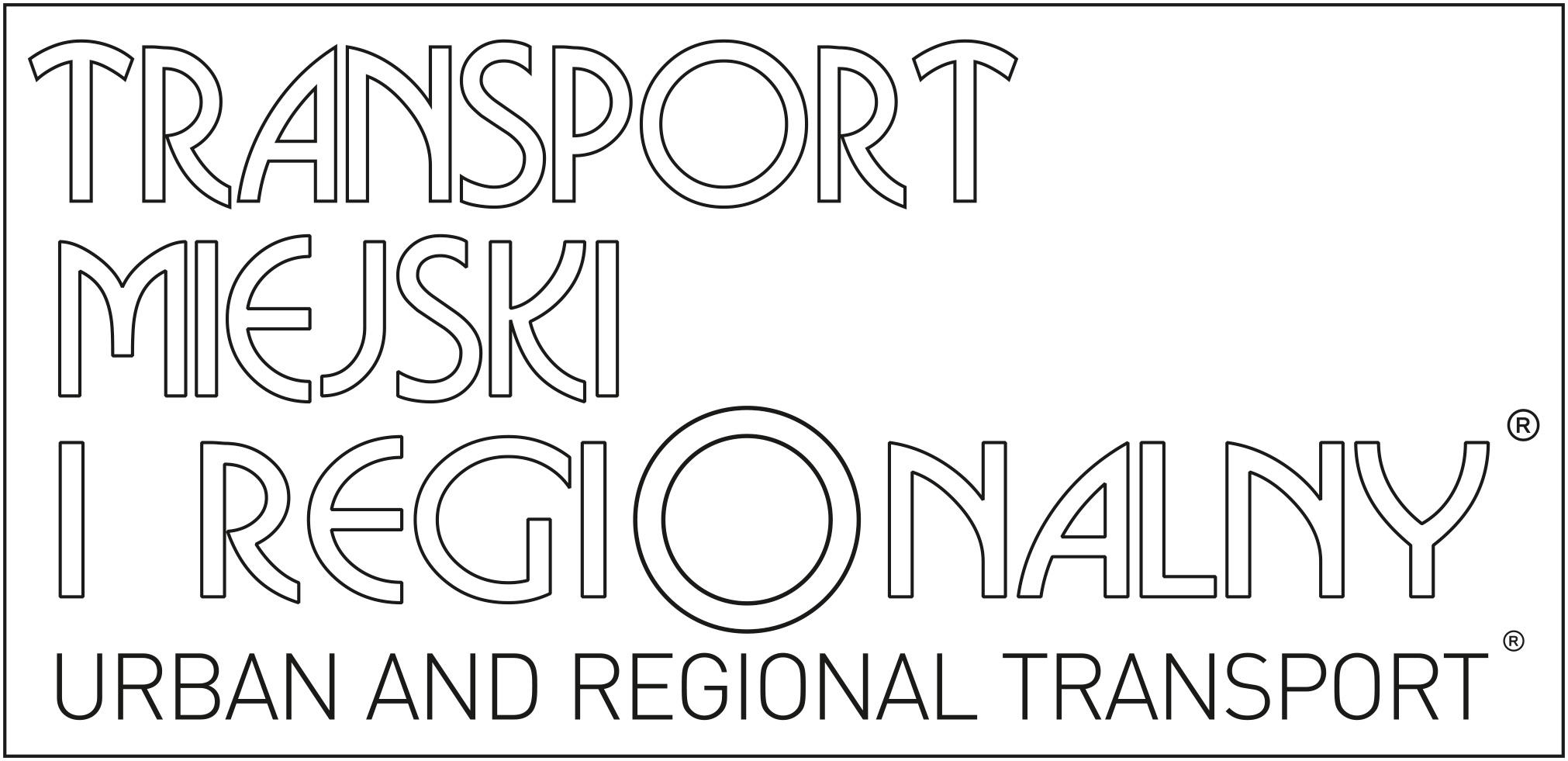
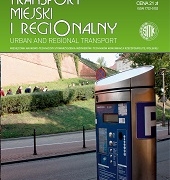
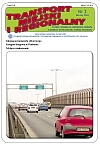 SITK RP
SITK RP 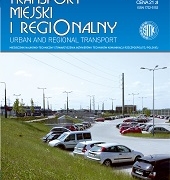 SITK RP
SITK RP 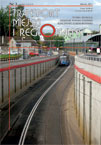 SITK RP
SITK RP 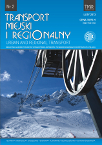 SITK RP
SITK RP 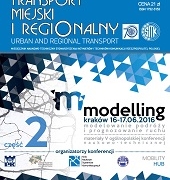 SITK RP
SITK RP 
 SITK RP
SITK RP